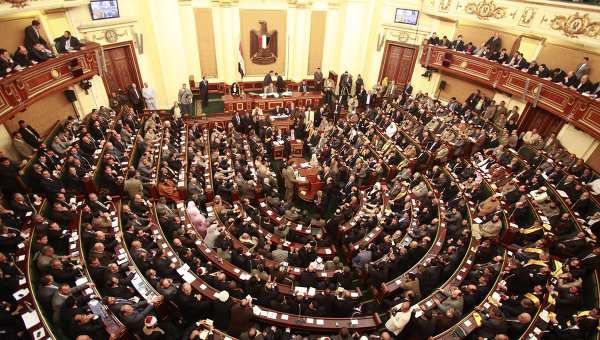CAIRO: A Muslim Brotherhood MP says that he is working on a draft law that would penalize Muslims who convert to any other faith.
MP Ali Laban told Daily News Egypt that he is drafting this new law with Sheikh Al-Sayed Askar, a member in the PA’s Religious Committee.
The two based their initiative on a controversial fatwa claiming that conversion is forbidden and that Muslim converts should be considered apostates.
According to Askar, who was educated at Al Azhar, it is not “right for Muslims to convert to Christianity because it entails the denial of Prophet Mohamed’s message, which is a step down, while Christians who convert to Islam continue to honor Jesus.
Laban said that “most Muslims who convert to Christianity do it for financial, social or physiological reasons.
“As for the Muslims who convert because they are convinced that Christianity is the true faith, they deserve the maximum punishment, he added.
He denied that the timing of the proposed law is related to recently reported cases of Egyptian Muslims converting to Christianity.
“They are a minority, compared to the thousands of people including scientists and priests who convert to Islam every year, Laban said.
Both Askar and Laban said they do not plan to submit their draft law anytime soon, but believe that sharia should be implemented in accordance with Article 2 of the Egyptian constitution.
Article two says that Islam is the state’s official religion and that sharia is the principle source of legislation.
Their proposition was, however, met with disdain by human rights activists.
“This new law has nothing to do with Article 2 of the constitution, said Hafez Abou Seada, head of the Egyptian Organization for Human Rights and member of the National Council for Human Rights, “it has to do with people who adopt backward ideologies and are narrow-minded.
Abou Seada further says that “it is impossible for the new law to pass in the PA because it directly violates the Egyptian constitution’s main tenet of equality between citizens.
The question of whether apostasy should be punished according to Sharia has been a matter of fierce debate among Muslim scholars over the centuries.
According to a 1979 fatwa issued by Sheikh Gad El Haq Aly Gad El Haq, apostasy from Islam (referred to as ‘redda’) is punishable by death. But since current laws don’t allow death sentences in such cases, the fatwa says, disciplinary measures should be taken since redda “contradicts with general order. This falls under the overarching tenet to “protect the society.
Other scholars claim that punishment to Muslims who leave Islam was neither mentioned in Quran nor reported to have taken place during the time of Prophet Mohammed. Both Quran and Sunna (tradition of the prophet) emphasize freedom of faith.
However, the main incident that scholars depend on to criminalize Muslims who convert to other religions is the war that erupted during the reign of the first Caliph, Abou Bakr, who fought those who abandoned Islam after the death of Prophet Mohammed.
Other scholars and historians argued that the conflict was political, not religious.
Both Askar and Laban acknowledged the there is an ongoing debate on the kind of punishment to meted out to converts, agreeing that cases should be dealt with individually but that converting from Islam should be criminalized by law.


